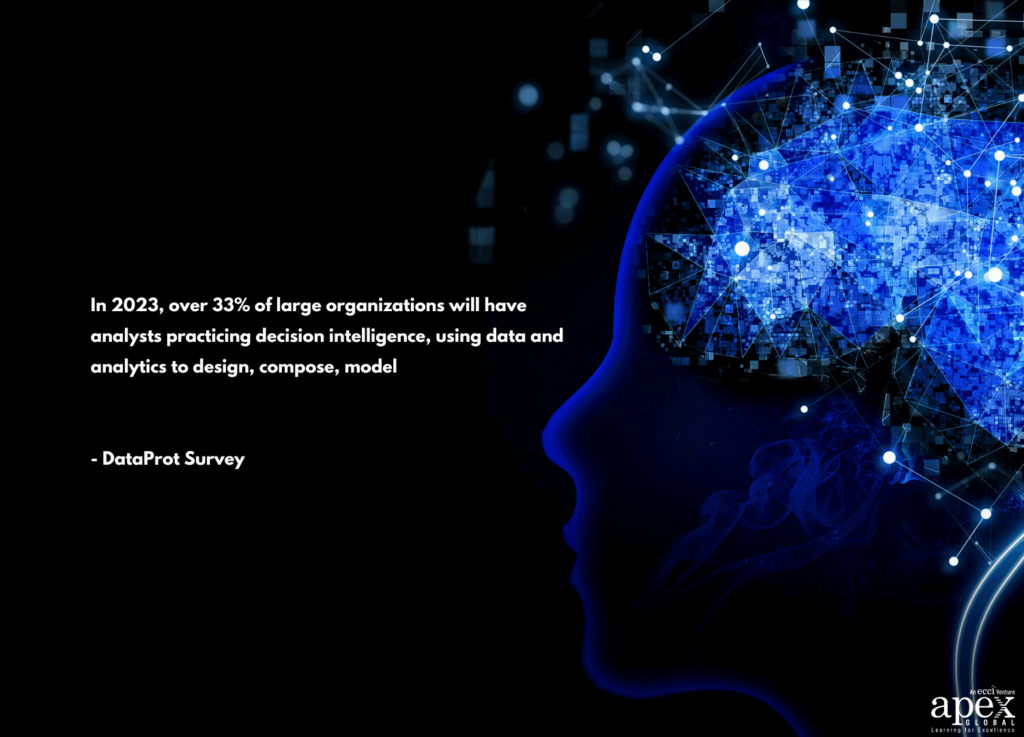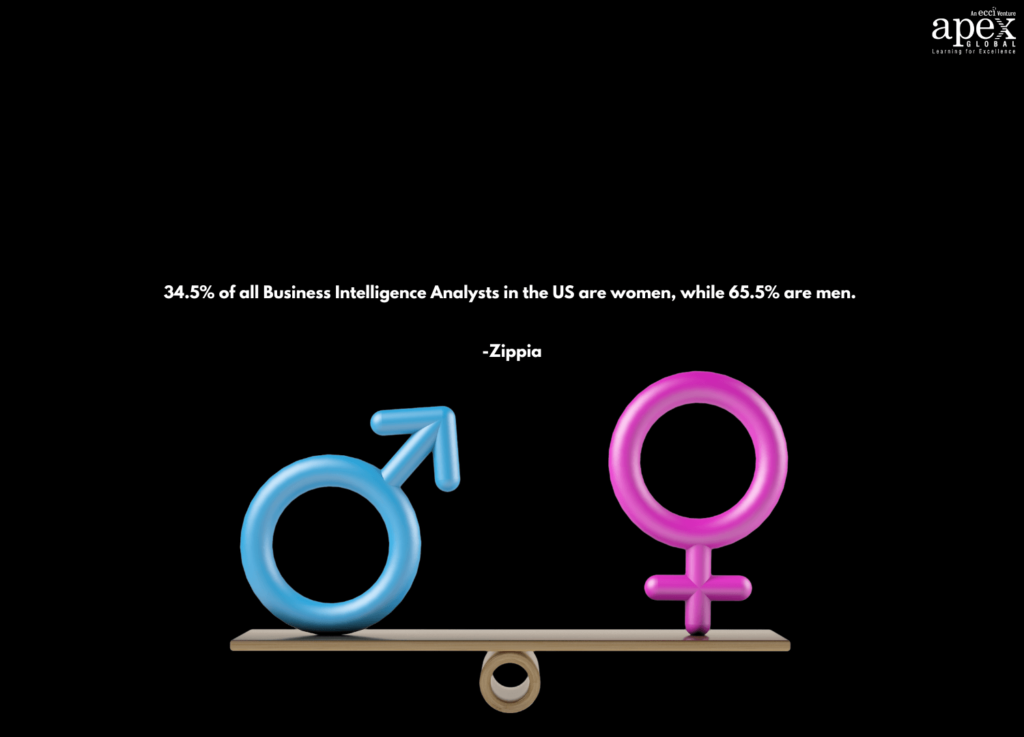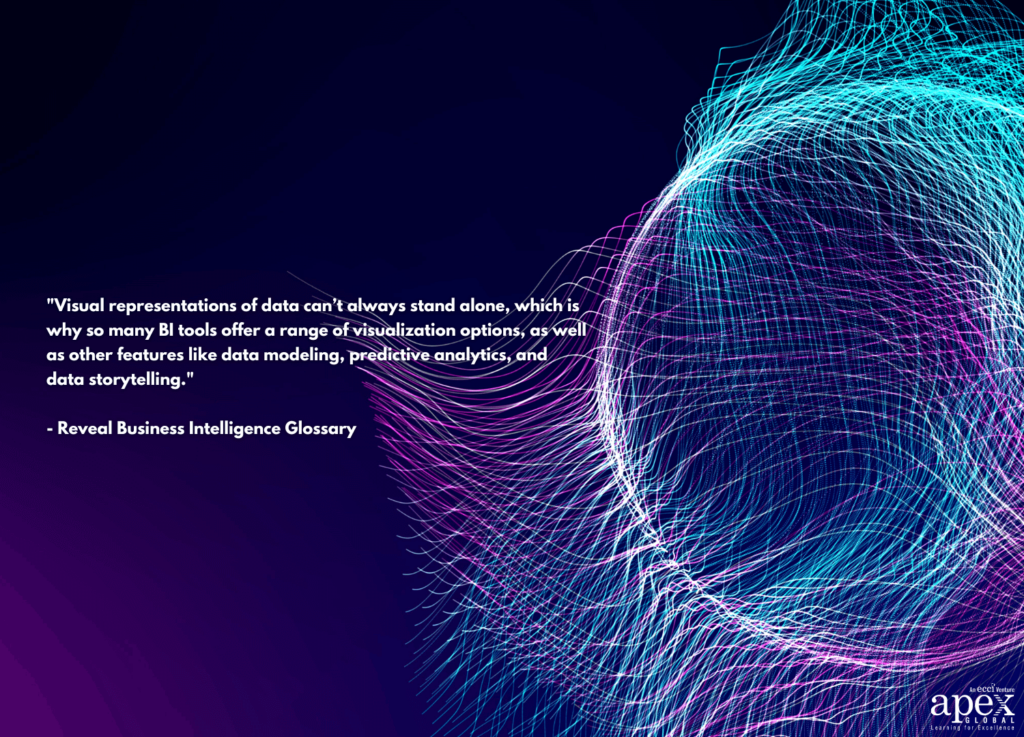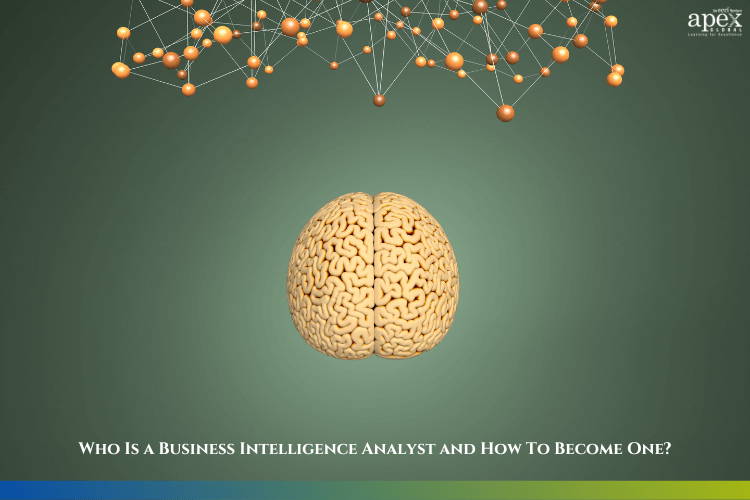In a world where data reigns supreme, Business Intelligence Analysts are the storytellers. Armed with skills and curiosity, they transform numbers into decisions, shaping the future of businesses with every insight.
At the heart of every successful decision lies data, and BI analysts are the master interpreters of this data. They gather, analyze, and transform data into comprehensible insights that guide strategic choices. They collaborate closely with various departments, translating complex data into understandable narratives.
What you'll find in this article
- 1 Who is a business intelligence analyst?
- 2 How to become a business intelligence analyst- educational background and prerequisites
- 3 Skills required for a business intelligence analyst
- 4 Day-to-day responsibilities of a business intelligence analyst
- 5 What are some of the sources of data that business intelligence analysts use?
- 6 Challenges faced by business intelligence analysts
- 7 In summation
Who is a business intelligence analyst?
A Business Intelligence Analyst, also known as a BI Analyst, is responsible for analyzing data and other information to help organizations make sound business decisions. They use data to identify patterns and trends in a particular market that may affect the actions and goals of a company. A BI Analyst’s role can be broadly broken down into three parts:
- Data Analysis: Collecting and analyzing data to identify trends and patterns that can help a company make informed decisions.
- Financial and Business Knowledge: A good understanding of business practices and finance is critical to providing insights on improving the business.
- Communication: A BI Analyst often speaks in front of teams or creates written reports to share findings. Having the written and verbal communication skills to synthesize research and recommendations is often core to the role.

How to become a business intelligence analyst- educational background and prerequisites
A solid foundation is essential. Most BI analysts hold degrees in fields like Computer Science, Information Systems, or Mathematics. However, diverse backgrounds, like Economics or Engineering, can also be advantageous. A thirst for learning and problem-solving is crucial.
There are several paths you can take to become a Business Intelligence Analyst. Here are some steps you can follow:
Step 1: Education
A qualification in computer science, business intelligence, or data analytics is needed to become a Business Intelligence Analyst. Aspiring analysts can earn a bachelor’s degree in data science, business analytics, or a related field. A business analytics degree typically covers data extraction, manipulation, and visualization to answer business operations questions and provide insights for decision-making.
For those seeking additional training, exploring specialized courses like the Business Intelligence and Analytics Foundation and Business Intelligence and Analytics Advanced from APEX Global Learning could be a valuable option. These courses offer in-depth knowledge of data analysis and visualization techniques, enhancing your skill set for a career as a Business Intelligence Analyst.
Step 2: Obtain a professional certificate
One way to get started is to obtain a professional certificate that reflects your skills and expertise. The best professional certification for Business Intelligence Analysts is Microsoft Certified: Data Analyst Associate. This certification proves that you have the skills to work with data, including data analysis, data visualization, and modeling.
Step 3: Gain experience
To become a Business Intelligence Analyst, you need to gain experience in data analysis, data modeling designs, organizational databases, and data warehouses. You can start by working as a data analyst or a business analyst to gain experience in data analysis and business intelligence.
Step 4: Develop soft skills
In addition to hard skills such as data modeling and statistics, Business Intelligence Analysts require soft skills like problem-solving and communication. They need to be able to communicate complex data insights to non-technical stakeholders. Developing these skills can help you become a successful Business Intelligence Analyst.
Skills required for a business intelligence analyst
Individuals who intend to pursue a career as a Business Intelligence Analyst will require a wide range of skills. To become a Business Intelligence Analyst, you need a combination of technical and soft skills.
Technical skills
- Data Preparation: Business Intelligence Analysts need to be able to collect, clean, and prepare data for analysis.
- Data Mining: They should have experience in using data mining techniques to extract insights from large datasets.
- Statistical Analysis: Business Intelligence Analysts should have a good understanding of statistical analysis and modeling techniques.
- Data Visualization: They should be able to create visualizations that effectively communicate insights from data.
- Knowledge of Data Collection Protocol and Software: Business Intelligence Analysts should have knowledge of data collection protocols and software.
- Expertise in Integrating Programs and Software into Data: They should be able to integrate different software programs and tools into data.
Soft skills
- Problem-Solving: Business Intelligence Analysts should be able to identify problems and develop solutions to address them.
- Communication: They should have strong written and verbal communication skills to present findings and recommendations to stakeholders.
- Collaboration: Business Intelligence Analysts should be able to work collaboratively with different teams and departments.
- Business Acumen and Financial Knowledge: They should have a good understanding of business practices and finance to provide insights on improving the business.
- Time Management: They should be able to manage their time effectively and prioritize tasks.

Day-to-day responsibilities of a business intelligence analyst
Every day as a Business Intelligence Analyst is like being a detective in the world of data. You dive into datasets, extracting clues and insights that reveal the story behind the numbers. Your main gig is to spot patterns and trends that guide the big decisions. From crafting those eye-catching charts to collaborating with teams across the board, you’re in charge of conducting the search for strategic choices from the chaos.
Data analysis
Business Intelligence Analysts analyze data to identify patterns, trends, and insights that can help drive business decisions. They use various techniques and tools to extract meaningful information from large datasets.
Data modeling and reporting
They create data models and develop reports to present findings and insights to stakeholders. This involves organizing and structuring data in a way that is easily understandable and actionable.
Data visualization
Business Intelligence Analysts use data visualization techniques to create charts, graphs, and dashboards that effectively communicate insights to non-technical stakeholders. This helps in understanding complex data and making informed decisions.
Collaboration and communication
Business Intelligence Analysts collaborate with different teams and departments to understand their data needs and provide relevant insights. They also communicate their findings and recommendations through presentations, reports, and meetings.
Data quality and governance
They ensure the accuracy, integrity, and quality of data by implementing data governance practices and standards. This includes identifying and resolving data inconsistencies or errors.
Continuous learning and skill development
Business Intelligence Analysts stay updated with the latest tools, technologies, and industry trends to enhance their analytical skills. They continuously learn new techniques and improve their knowledge of data analysis and business intelligence.
Problem solving
They identify business challenges and use data analysis to propose solutions and strategies for improvement. They work on identifying gaps and areas of improvement within the organization.
Data security and privacy
Business Intelligence Analysts adhere to data security and privacy regulations to protect sensitive information. They ensure that data is handled and stored securely.
What are some of the sources of data that business intelligence analysts use?
Ever wondered where all those numbers that shape business strategies come from? Well, Business Intelligence Analysts are the magicians who pull data from everywhere. They peek into sales reports, listen to customer feedback, eavesdrop on social media, and even decode market research. It’s like having a backstage pass to the secrets behind business success. Here are some of the sources of data that Business Intelligence Analysts use:
Internal data: Business Intelligence Analysts analyze data generated within the organization, such as sales data, customer data, financial data, and operational data. This data is often stored in databases or data warehouses.
External data: They also analyze data from external sources, such as market research reports, industry benchmarks, economic data, and competitor data. This helps in understanding market trends, customer behavior, and industry dynamics.
Documents and files: Business Intelligence Analysts may gather data from various documents, files, and reports, such as spreadsheets, PDFs, Word documents, and presentations.
Social media and web data: They analyze data from social media platforms, websites, and online forums to gain insights into customer sentiment, brand perception, and market trends.
Customer surveys and feedback: Business Intelligence Analysts collect and analyze data from customer surveys, feedback forms, and customer support interactions to understand customer preferences, satisfaction levels, and areas for improvement.
Transactional data: They analyze transactional data, such as sales transactions, purchase orders, and invoices, to identify patterns and trends in customer behavior and sales performance.
Sensor data: In certain industries, Business Intelligence Analysts may work with sensor data from IoT devices or equipment to monitor performance, detect anomalies, and optimize operations.
Third-party data: They may also utilize third-party data sources, such as government data, industry reports, and data providers, to enrich their analysis and gain additional insights.

Challenges faced by business intelligence analysts
Sure, being a Business Intelligence Analyst is like being a data superhero, but even superheroes have their kryptonite. Imagine trying to blend a hundred different colors to create a masterpiece – that’s what connecting data from various sources feels like. And don’t even get started on the quest for accurate data. It’s like searching for a needle in a haystack. But these analysts are the modern-day adventurers, and part of the job is to boldly face several challenges in their day-to-day work. Here are some of the common challenges faced by Business Intelligence Analysts:
Integrating data from different source systems
Business Intelligence Analysts often face challenges in integrating data from different source systems, such as databases and data warehouses. This can lead to data quality issues and inconsistencies in the data.
Data quality issues
Ensuring data quality is a critical challenge for Business Intelligence Analysts. Poor data quality can lead to inaccurate insights and decisions.
Data silos with inconsistent information
Siloed systems can create challenges for Business Intelligence Analysts in accessing data with variable permission levels and security settings. This can lead to incomplete or inconsistent data, which can affect the accuracy of insights.
Lack of execution and training
Business Intelligence Analysts may face challenges in executing and implementing BI systems due to a lack of training and support. This can lead to low user adoption and underutilization of BI tools.
Unifying BI across all user groups
Business Intelligence Analysts may face challenges in unifying BI across all user groups, including technical and non-technical stakeholders. This can lead to inconsistencies in data interpretation and decision-making.
Targeting the right audience
Business Intelligence Analysts may face challenges in targeting the right audience with their insights and recommendations. This requires a deep understanding of the business and its stakeholders.
Technical complexity
Business Intelligence Analysts may face challenges in dealing with the technical complexity of BI systems and tools. This requires a good understanding of data modeling, data warehousing, and database management concepts.
Data security and privacy
Business Intelligence Analysts must ensure that data is handled and stored securely to protect sensitive information. This requires a good understanding of data ethics and privacy regulations.
Remember, it’s not all about numbers and spreadsheets. It’s about weaving stories from data threads, connecting dots to unveil a bigger picture.
In summation
Becoming a BI analyst is embarking on an exhilarating adventure of data exploration. From learning essential technical skills to crafting impactful visualizations, the path is rich with opportunities. Remember, data is the canvas, and you’re the artist turning it into actionable insights that shape the future of businesses.
In the words of Peter Drucker, “The aim of marketing is to know and understand the customer so well the product or service fits them and sells itself.” As a BI analyst, your canvas is data, and your insights drive the decisions that shape the future of businesses. Embrace this dynamic journey, and let the world of data be your masterpiece.


